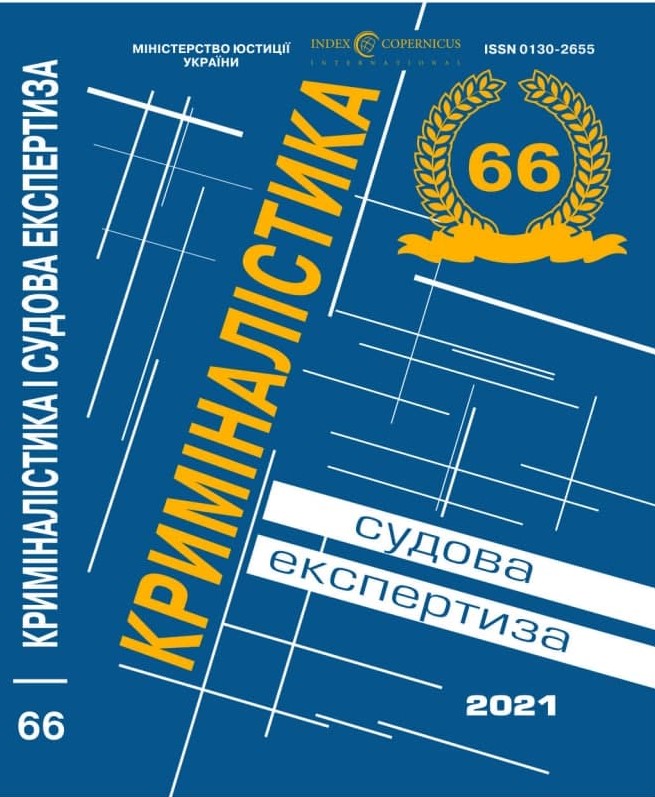
DOI: https://doi.org/10.33994/kndise.2021.66.16
S. Kukhareva D. Kalnoi
The article deals with legislative amendments in the regulation of forensic examinations and expert research. Its practical application in forensic activity and the use of research results in forensic practice is analyzed. A brief analysis of judicial practice has been carried out for the courts to assess the conclusions of experts, taking into account the amendments made to the legislation on forensic activity, and its recognition as appropriate evidence in the case. The problematic of this article is related to the need to properly regulate the issue of conducting forensic examinations and expert research, due to the presence of a number of contradictions in such regulation now. In particular, regarding a clear definition and regulation of the legal and procedural status of an expert opinion and expert research, as well as special knowledge. The application of the requirements of the law on forensic activities, as amended, with regard to the provision of expert advice to other persons on request prior to the commencement of proceedings in a case, is critically evaluated in practice, as the relevant conclusions may not be taken into account by the courts (as not having an appropriate procedural status).
The legislation on forensic activity requires the elimination of gaps and the introduction of appropriate changes, bringing the regulatory legal acts in accordance. In particular, to agree on the requirements of Articles 1 and 71 of the Law of Ukraine “On Forensic Examination” regarding the grounds (its presence or absence). For conducting forensic examinations on the appeal of other persons out of court proceedings, as well as clause 1.8 of the Instruction on the appointment and conduct of forensic examinations and forensic investigations approved by order of the Ministry of Justice of Ukraine dated 08.10.1998 No. 53/5. With the Resolution of the Grand Chamber of the Supreme Court, dated 18.12.2019 No. 522/1029/18 regarding the indication in the expert opinion regarding the expert’s knowledge of criminal liability for a knowingly false conclusion, and that such a conclusion was prepared for submission to court.
Key words: legal regulation, examination, expert research, expert, special knowledge, process, awareness, warning, legislation.










